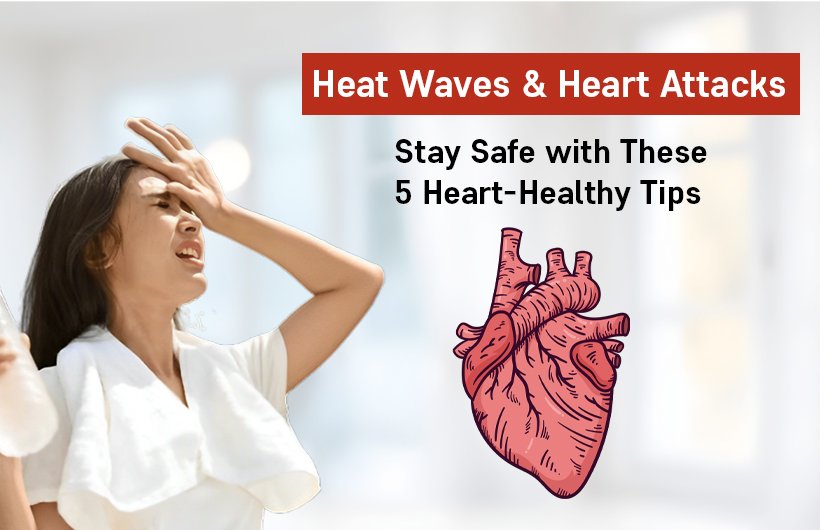Extreme heat is more than just uncomfortable; it can be life-threatening, especially for those with underlying heart conditions. Research confirms that summer heart attacks increase their frequency during heat waves by intensifying cardiovascular load on the body. Understanding the process of heart attack due to heat exposure becomes vital for your protection, especially during hot summer months.
How Heat Waves Increase the Risk of Summer Heart Attacks
Your body starts intense cooling procedures as temperatures reach their peak. Your heart rate rises while dehydration occurs, and blood turns thicker, thus creating excessive pressure on your cardiovascular system. The major disruptors of heart health due to heat exposure consist of these factors:
- High temperatures force the heart to increase its pumping speed, which strains heart functioning.
- High levels of dehydration caused by heavy sweating lead to thickened blood and increased formation of blood clots that may result in a summer heart attack.
- Electrolyte imbalance occurs when the loss of sodium and potassium minerals produces irregular heartbeats and multiple cardiovascular dangers.
- Extremely high temperatures cause blood vessels to open up, which results in decreased blood pressure that might trigger uncertain body reactions ranging from fainting to full cardiac arrest for weak individuals.
Older patients and people who have a heart condition, along with those using medicines for blood pressure or cholesterol, experience heightened cardiovascular dangers because of heat-related conditions.
5 Essential Heart-Healthy Tips to Stay Safe in Extreme Heat
1. Stay Hydrated
Temperature-related dehydration stands as a primary factor that leads to summer heart attacks during hot environmental conditions. Demands for fluids should continue throughout the day, with water and coconut water, and electrolyte drinks help the body regain its water content. You should stay away from sugary drinks and restrict your caffeine intake since these fluids cause increased dehydration in your body.
2. Avoid Peak Heat Hours
The most intense solar rays exist throughout the period from 10 AM until 4 PM. Stay indoors or in shaded, air-conditioned spaces during these hours. Put on breathable lightweight clothing when venturing outside; you should also protect your head with a hat and umbrella.
3. Limit Caffeine, Alcohol, & Salt Intake
Excessive salt consumption causes water to stay in the body and causes high blood pressure, but both alcohol and caffeine dehydrate you. Lemon water combined with herbal teas function as suitable options to preserve electrolyte stability because they maintain hydration.
4. Keep Your Environment Cool
Cool your body temperature through the use of fans, air conditioners, and cooling towels. Cool showers and placing damp cloths on your wrists and neck as well as your neck can rapidly decrease your body temperature.
5. Recognize Early Warning Signs
Know the symptoms of summer heart attack, such as:
- Chest pain or discomfort
- Shortness of breath
- Dizziness or fainting
- Excessive sweating or confusion
- Rapid or irregular heartbeat
If you experience any of these, seek medical attention immediately.
Consult the Best Heart Attack Doctor in Ahmedabad
People who have heart disease conditions or face high heart risk because of harsh weather must meet with an expert specialist. Dr. The leading Heart attack doctor in Ahmedabad, Jignesh Patel, supplies expert heart health prevention methods and clinical treatment to protect your heart during the summer season.
The contemporary heart clinic under his leadership provides your area with revolutionary testing services along with individualized therapeutic approaches and lifestyle guidance to keep your heart healthy. The quality of heart care patients receive from Dr. Patel includes both regular check-ups and urgent medical needs.
Protect Your Heart This Summer!
High temperatures require you to protect your heart from potential risks. Severely warm conditions can stress your health so you need to keep yourself hydrated while seeking expert heart care treatment with your trusted Cardiologist near you Dr. Jignesh Patel who is in your area.
Schedule an appointment today and take proactive steps to keep your heart safe!






